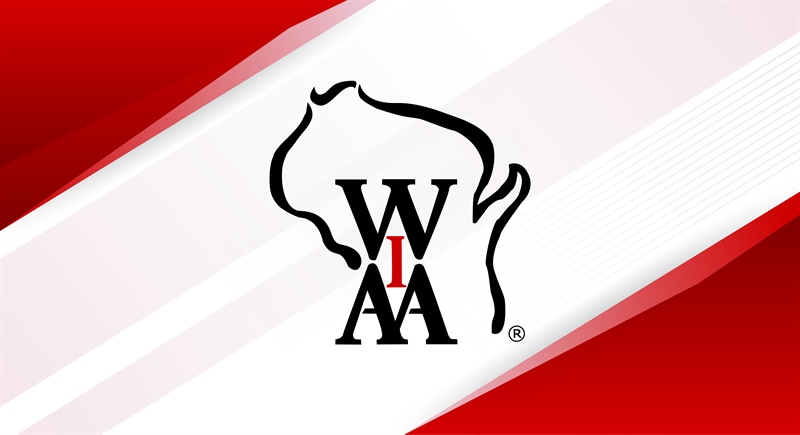
The Wisconsin Interscholastic Athletic Association (WIAA) says it “can’t speculate” as to whether it would ban student athletes based on race if future directives from the Trump White House ordered schools to do so.
The WIAA is a private, nonprofit, membership-based entity which oversees middle and high school sports at over 500 public and private Wisconsin schools.
On Feb.5, President Donald Trump signed an executive order intended to ban transgender athletes from participating in girls’ and women’s sports.
The WIAA elected to go along with Trump’s order, with a vote “affirming its compliance with federal directives that only students designated as females at birth will be allowed to participate in girls competitions,” according to a statement issued February 19.
The executive order gives federal agencies the ability to withhold funding from athletic entities who are non-compliant with the order. Some states, such as Maine, have refused the order and engaged in a back-and-forth with the White House about receiving federal funds.
The WIAA, however, does not receive any federal or state funding, and operates solely on revenues derived from membership fees, ticket sales at state tournaments, and private donations. Because the WIAA is not a governmental body, and doesn’t receive any federal or state funding, it is unclear why they felt it was necessary to comply with any guidance from Trump.
When asked by Madison365 if the WIAA would issue similar guidance if the Trump administration were to say that athletes of different races should not compete against one another, a WIAA representative said they couldn’t say.
“I can’t speculate about what steps the elected board might have to consider around future, hypothetical guidance,” Rusty Schultz, executive vice president of operations of the WIAA,
said.
The current ban pertains to girls sports only, according to statements released by the WIAA and the NCAA, who took similar action for collegiate sports. Fears of athletes born as boys gaining competitive advantage against girls in sports designated for girls have made national news and resulted in policy changes such as the one the WIAA announced last week.
On Feb.19, the WIAA announced its Board of Control had voted to affirm its compliance with federal directives that only students designated as females at birth will be allowed to participate in girls competitions.
“Working in consultation with legal counsel, our board updated this policy to ensure clarity is provided to our membership as they work to comply with new federal guidance from the White House,” Stephanie Hauser, Executive Director of the WIAA said in a statement.
The WIAA has refused multiple requests to provide examples of unfair play or give Madison365 any anecdote about how a transgender athlete caused controversy in a WIAA competition, or to cite any parental complaints or provide records reflecting levels of participation of transgender athletes in state competition.
“That’s where the question for me comes in,” said Steve Salerno, superintendent of Mt.Horeb area school district. “I’ve not seen many (transgender competitors). I’ve been doing this for 35 years. In 35 years I could probably count them on one hand.”
The Madison Metropolitan School District said it has not received any concerns from parents about unfair play, received complaints or experienced any difficulties. The only concern the school district has is how to explain all of this to hurt, confused children.
“It’s a huge concern when you’re personally impacted,” said Jeremy Schlitz, the district’s athletics director. “We want to make sure they know we’re committed to providing a safe environment for them and giving them the opportunities provided by state and federal law.”
Schlitz said all students in MMSD have the right to access athletics.
“I think it’s the commitment to ensuring that all students have access,” Schlitz said. “We’re going to make sure our gender queer and transgender kids know that we support them and we’re going to figure out what this means going forward. I think it’s important that our education leaders lead.”
Saleno said he’s concerned about the messages this policy sends to children.
“This is really just to assuage adults at the risk of hurting young people,” Salerno said. “Why don’t we see this more humanely?”
Because the WIAA is membership-driven, it’s on all area schools to opt to participate in WIAA sponsored athletics. WIAA participation includes state tournaments. They provide referees, resources for coaches, keep track of state records and other related items.
The move to ban transgender athletes came suddenly and Salerno believes the WIAA needs to hear more feedback from the public and, most importantly, children and their families. The WIAA’s directives went into effect immediately, giving schools no time for such dialogue.
“We were surprised they had such an immediacy with this,” Salerno said. “It puts kids and the people who love them and their schools in a very difficult position.”
Salerno said the future will not look kindly upon the WIAA’s decision.
“I think we’ll look at this the same as drinking fountains being segregated in the 1950s,” Salerno said. “This reminds me of the scare tactics of the late 50s and early 60s, and that’s how we’re going to look back on this.”
Former GSAFE (Gay Straight Alliance for Safe Schools) co-executive director Ali Muldrow is appalled at the WIAA’s decision.
“I think it’s incredibly cruel,” Muldrow said. “It subjects girls to an expectation their gender be presented in a specific way.”
Muldrow said the WIAA’s decision to enforce this policy can’t be blamed on Donald Trump because Trump is just doing what his supporters want him to do.
“This isn’t about Trump anymore,” Muldrow said. “This is about the people who believe in Trump and this is how far people will go to enforce their bigotry. This is why they voted for him.”
The WIAA Board of Control is made up of eight men and one woman, Waterford Union High School Athletics and Activities Director Jill Stober, who is the Gender Minority At-Large Representative.
This story has been updated to include statements from Ali Muldrow and Jeremy Schlitz.



